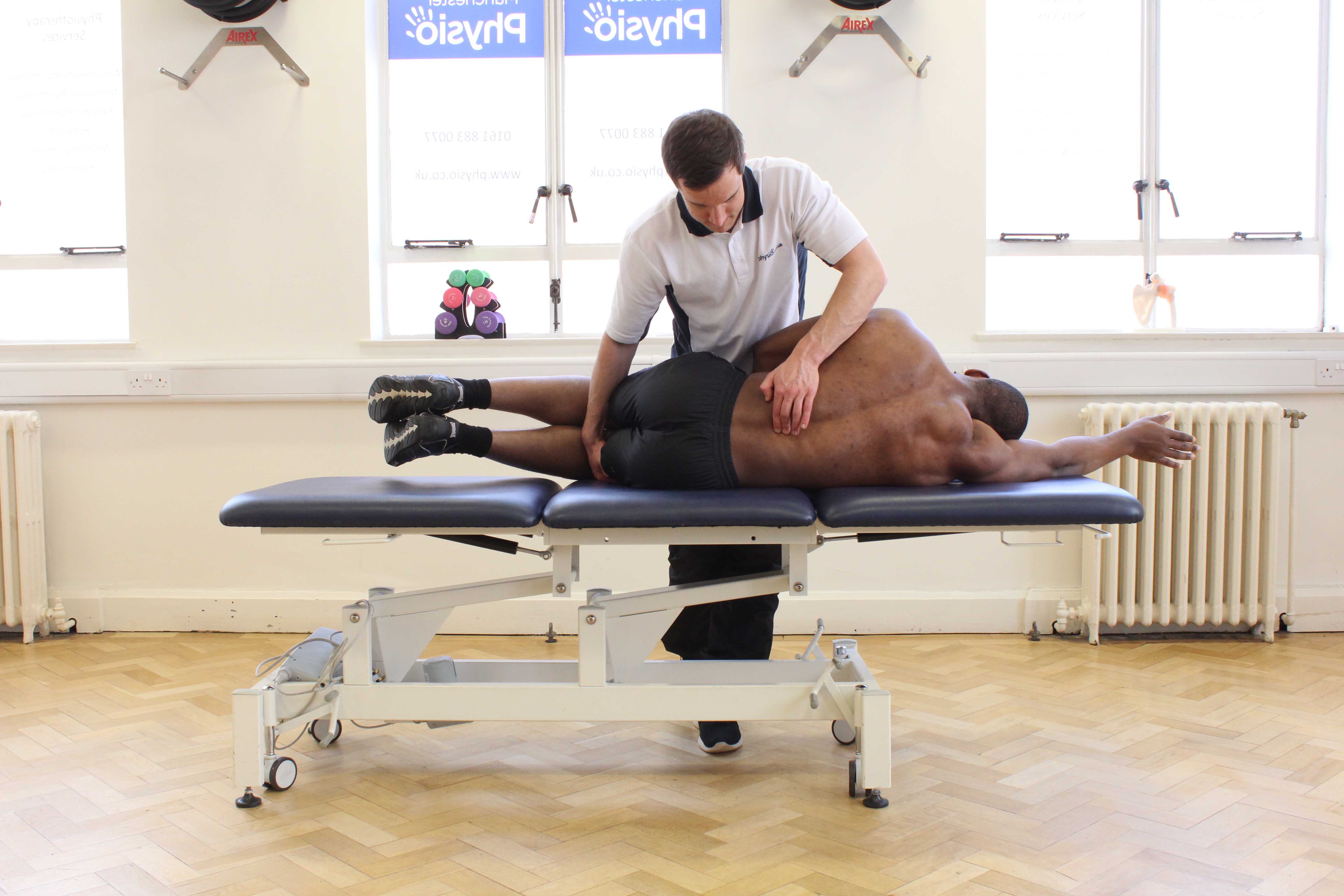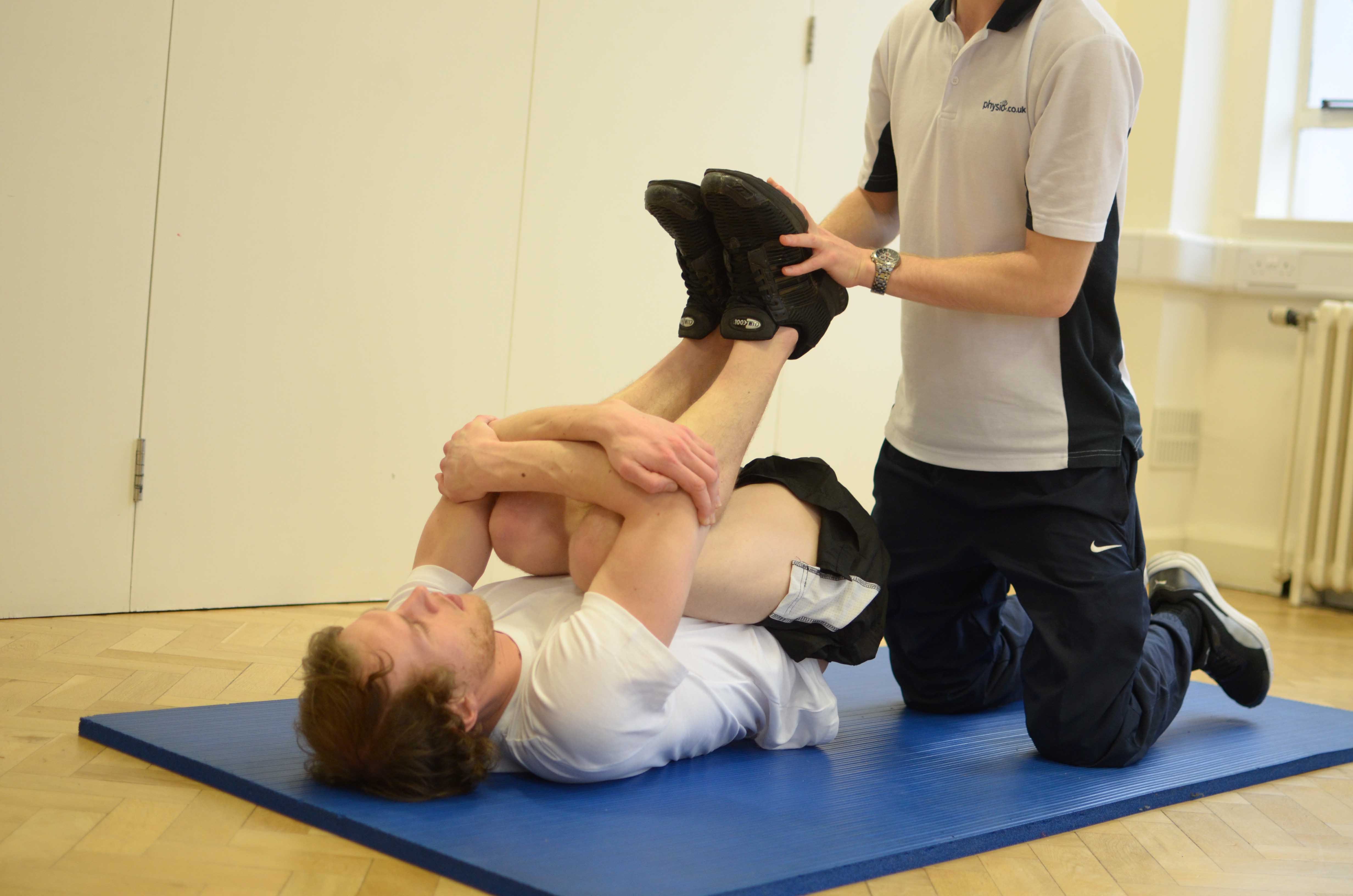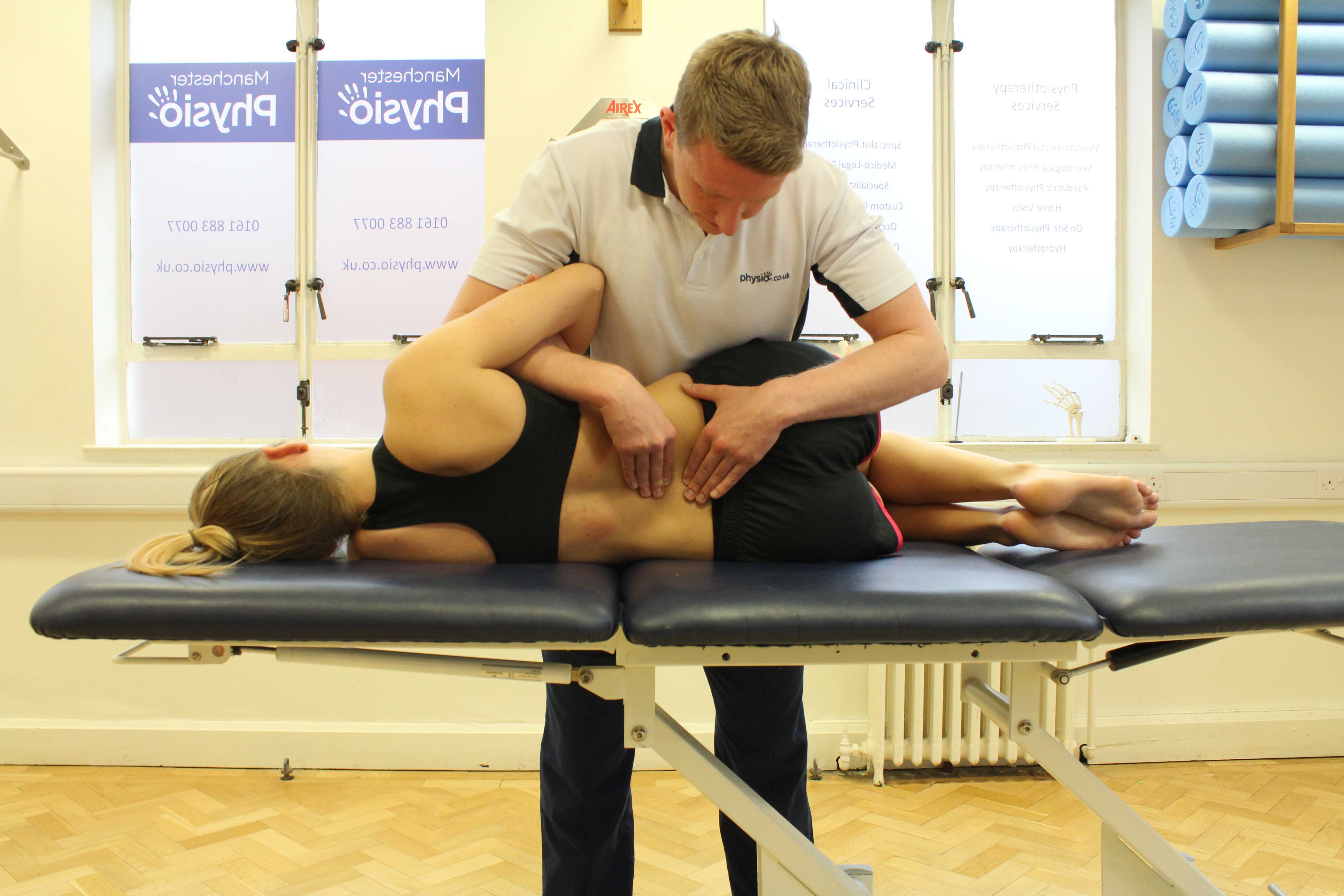Thoracic decompression
Thoracic decompression involves removing an area of the thoracic (upper back) spine that is narrowing the spinal canal andcausing pain and or numbness in the chest and arms. The surgeon removes tissue that is pressing on a nerve to relive pain and discomfort. This procedure may involve removing bone or disc material under a general anaesthetic.
During surgery, the individual is positioned on their front to allow access to the particular area of spine that is affected. Surgery may be require if you are experiencing severe pain and progressive neurological symptoms (numbness, tingling and muscle weakness).
 Above: Taping used to support the upper back muscles during rehabilitation exercises
Above: Taping used to support the upper back muscles during rehabilitation exercisesPhysiotherapy before athoracic decompression
Physiotherapy treatment is important before your surgery as it will keep the muscles in your back strong in preparation for your surgery. A physiotherapist may show you some simple exercises to continue in the weeks and days before your operation that will increase strength and flexibility.
Symptoms following a thoracic decompression
A physiotherapist will encourage you to mobilise soon after surgery usually within 24 hours, as pain allows. Pain is a common side effect after surgery however this will be controlled with medication. Your physiotherapist will advise and instruct you on the best ways to slowly start walking again and you will be provided with gentle exercises to continue at home. The length of stay in hospital will depend on your individual circumstances but will usually be between 3 and 6 days.
 Above: Pain centered around the upper back
Above: Pain centered around the upper backPhysiotherapy following a thoracic decompression
At Physio.co.uk our experienced physiotherapists will offer you a tailored rehabilitation program to shorten the period of postoperative recovery and get you back to full function as soon as possible. Physiotherapy treatment should be commenced as soon as possible after your surgery for the best possible results. Physiotherapy at Physio.co.uk following a thoracic decompression will improve the strength and flexibility in your back, hip and leg muscles and increase your independence with functional, work and leisure activities.
 Above: Trigger point massage of the latissimus dorsi muscle
Above: Trigger point massage of the latissimus dorsi muscle1-2 weeks
An initial assessment with your physiotherapist at Physio.co.uk will dictate how we can help you. Within the first weeks following your operation, your physiotherapist will guide you through gentle exercises to improve the mobility of your spine. Passive and active stretching at this time may be incorporated into your treatment programme which will re-educate muscle activation.Ultrasound and other hands-on treatment including massage may be used to relieve pain and inflammation and encourage healing.Advice and support about pain management and exercise will also reduce any fear of movement.
2-6 weeks
Physiotherapy treatment at this time of your recovery will continue stretching any shortened muscle groups and begin to strengthen the back, abdominal, hip and leg muscles. If your physiotherapist feels that you are ready to return to work, advice on ergonomics work such as proper seating, standing or lifting techniques will be provided. Ergonomic advice will also facilitate the reintegration at the workplace and help to prevent from work and leisure time activity related injury. Walking on a regular basis is an appropriate form of exercise at this stage of your recovery and will improve your general fitness.Physiotherapy treatment at this stage may include:
- Pain free mobility exercises
- Isometric strengthening abdominal exercises
- Exercises to strengthen the quads, hamstrings and glutes
- Stretching
- Joint mobilisation
- Progressing walking distance
- Stationary bicycle
- Hydrotherapy
6 weeks
At this stage in your rehabilitation, physiotherapy will continue to improve muscle co-ordination, strength and endurance. Your exercises will be progressed to facilitate your recovery and return to work. Your physiotherapist will also introduce activities centred on functional and sporting activities. Physiotherapy at stage may include:
- Strengthening back muscles through range
- Progressing walking distance
- Exercises based around your work or sporting life
12 + weeks
Your physiotherapist will support and advise you throughout your rehabilitation at Physio.co.uk. At this stage of your treatment, your physiotherapist will continue with the previous exercises to make sure you are safe and confident to return to normal activities independently. The time it takes to do this will depend on your individual needs and requirements.
Our physiotherapists at Physio.co.uk are experienced at treating individuals following a thoracic decompression. Your physiotherapists will support and guide you through a graduated exercise programme to ensure that you reach your maximum potential and return to work or leisure activities as soon as possible.
For more information call Physio.co.uk now on 0330 088 7800 or to book an appointment please contact us.

 0330 088 7800
0330 088 7800





































